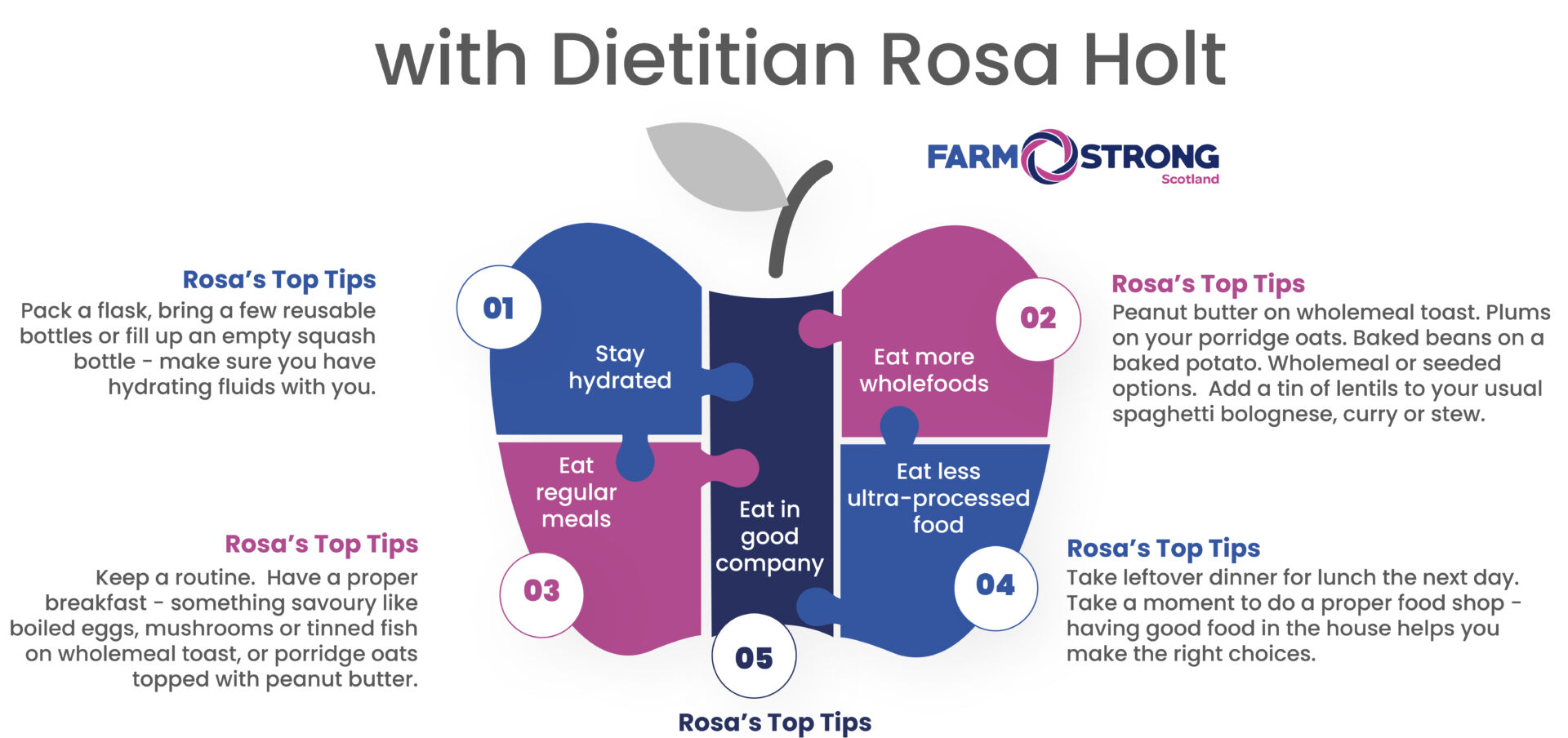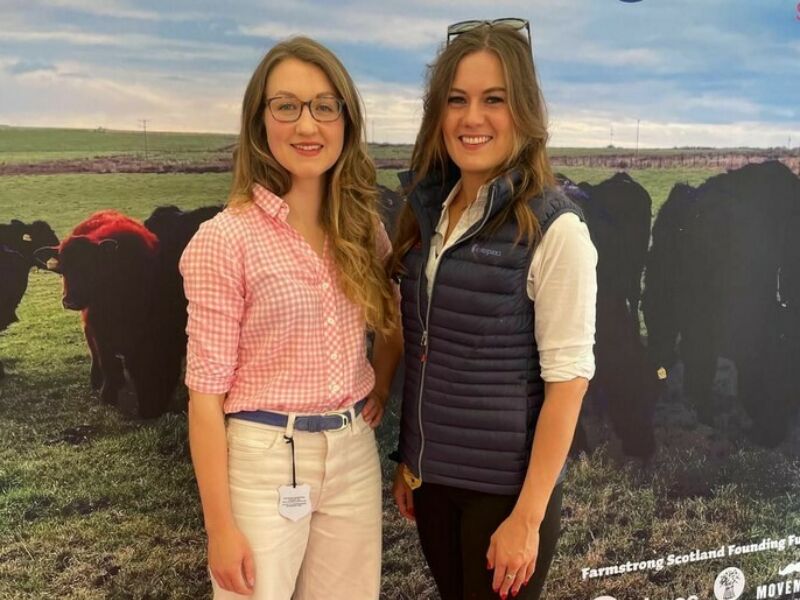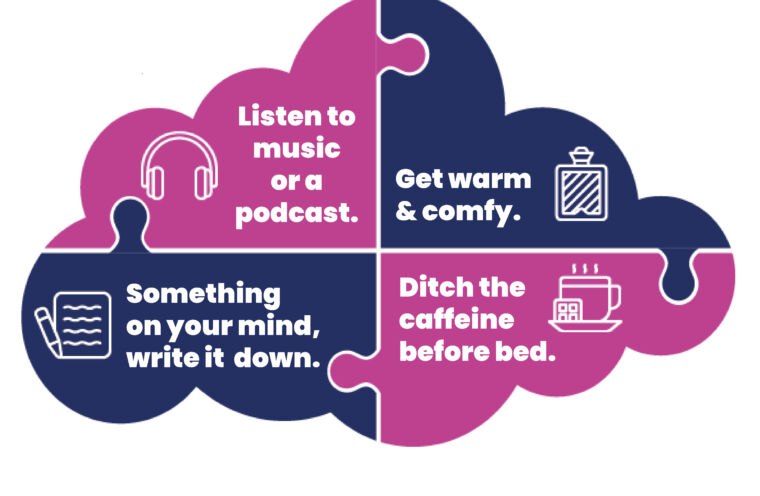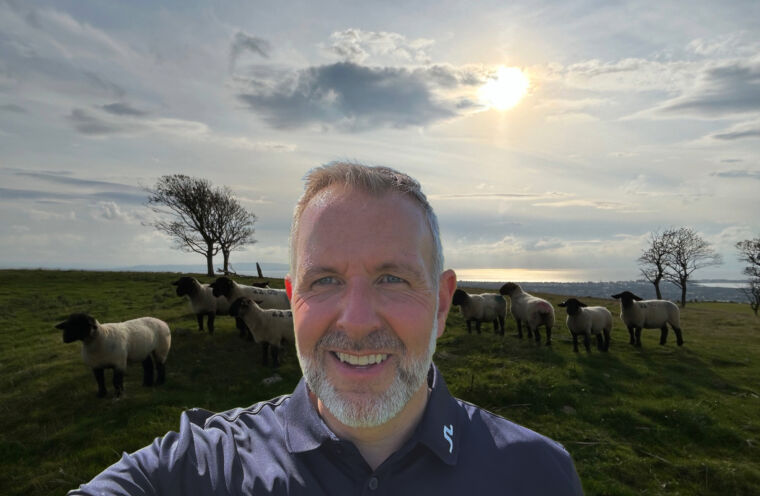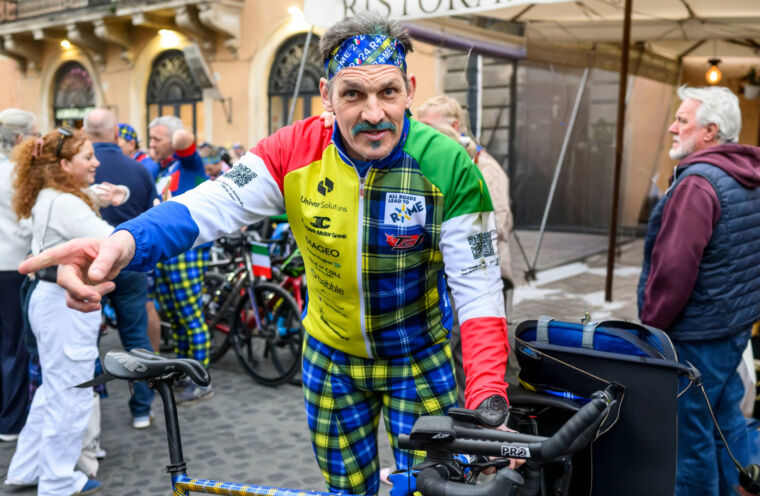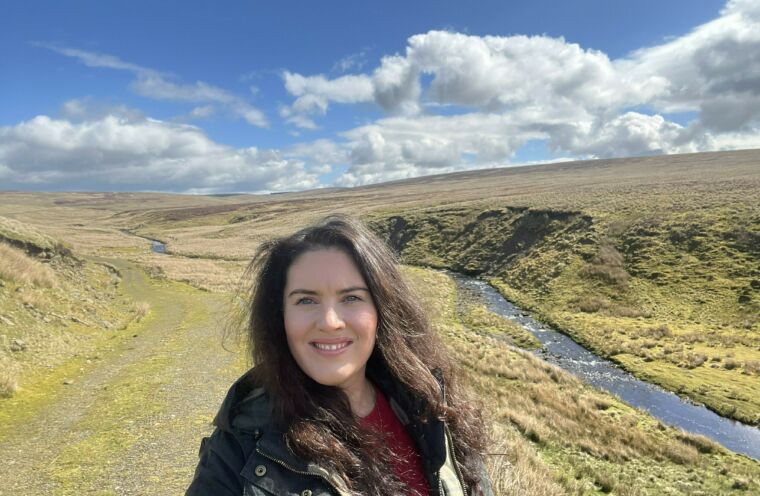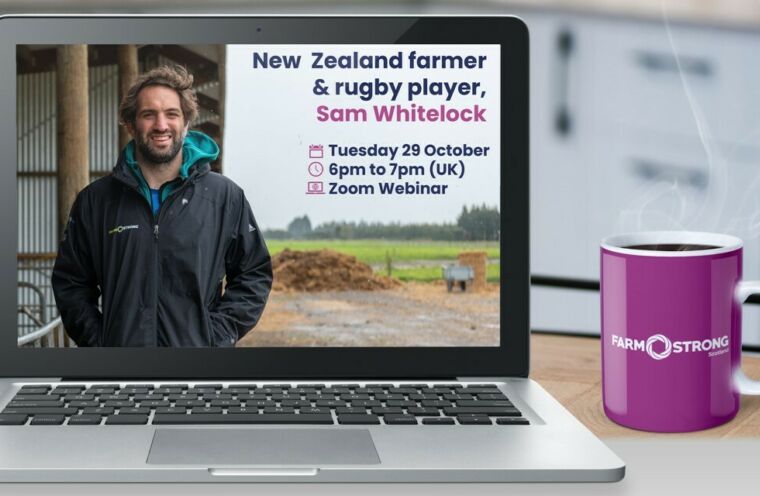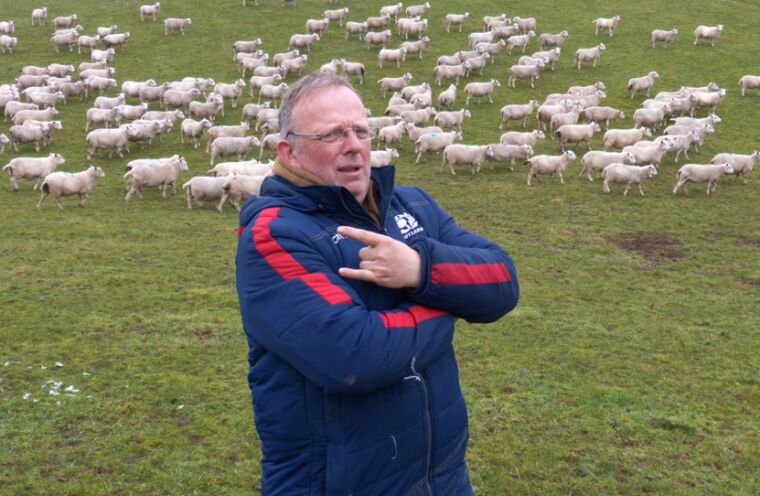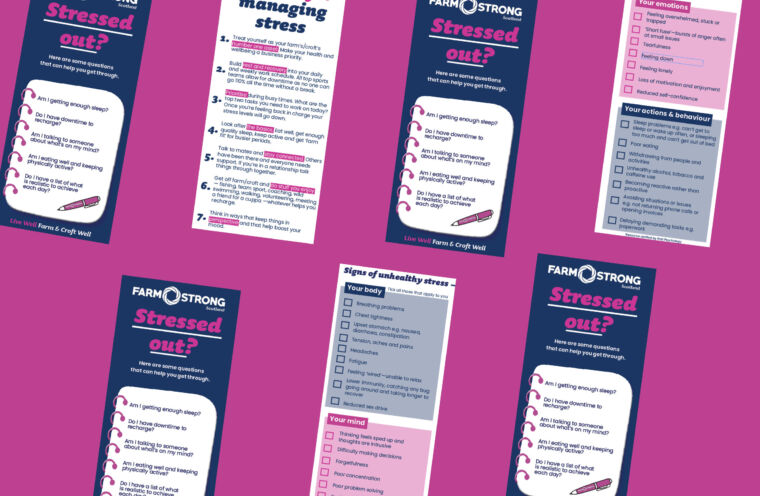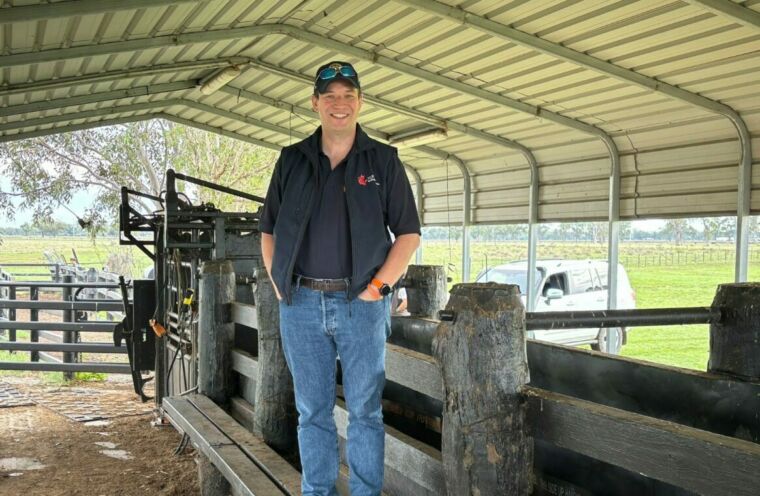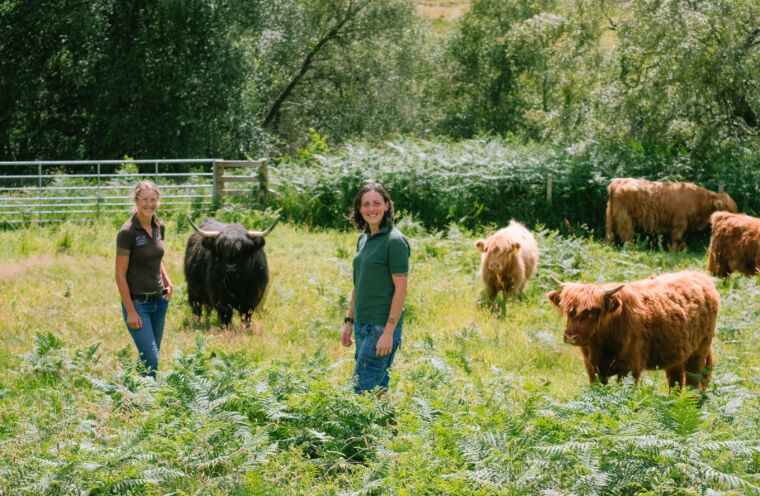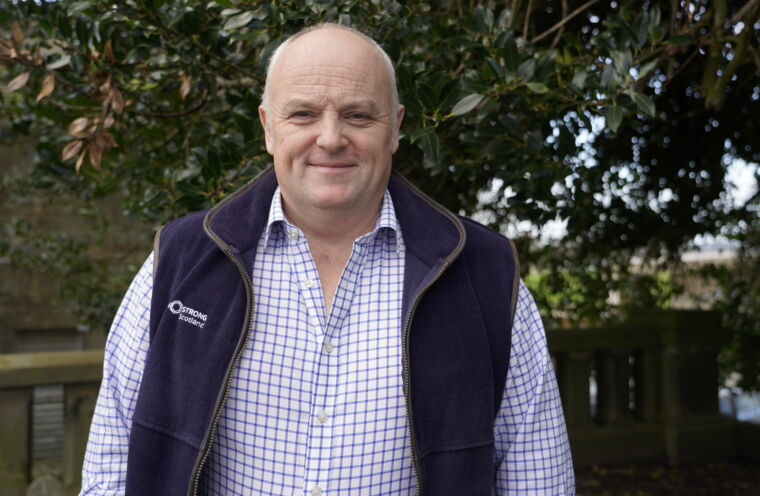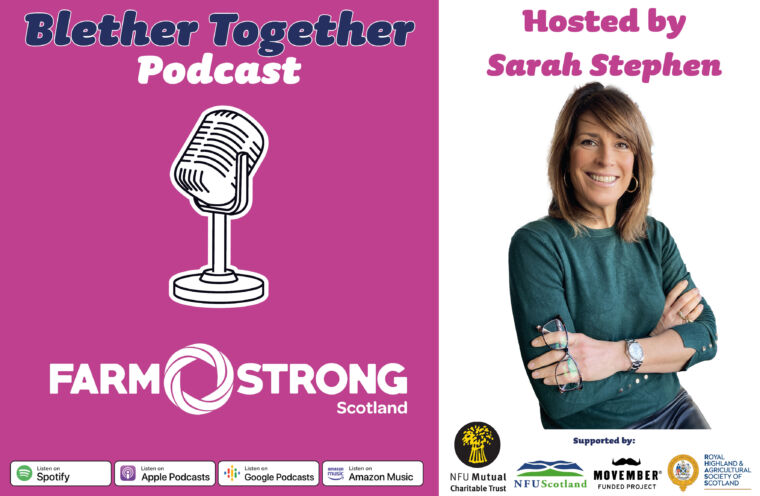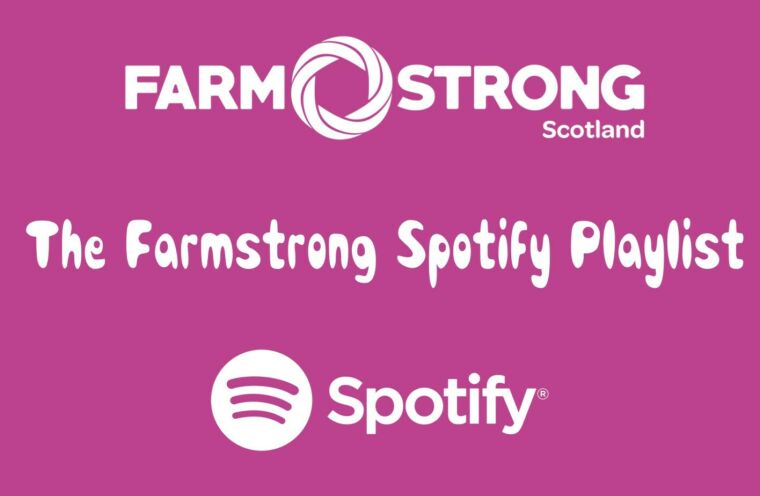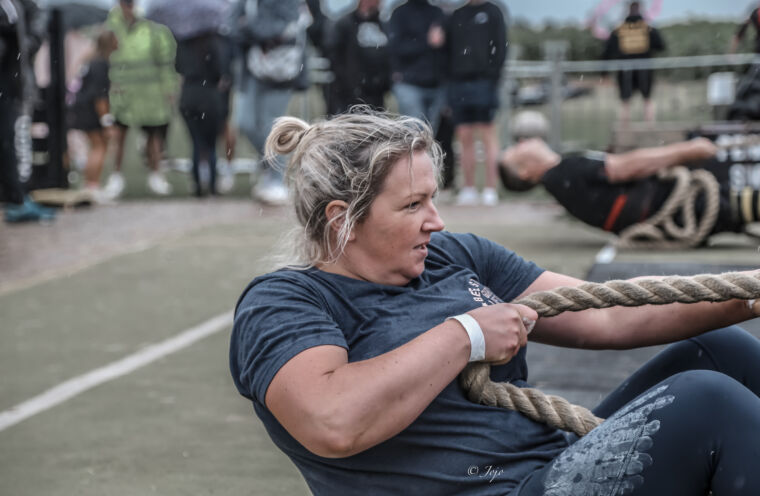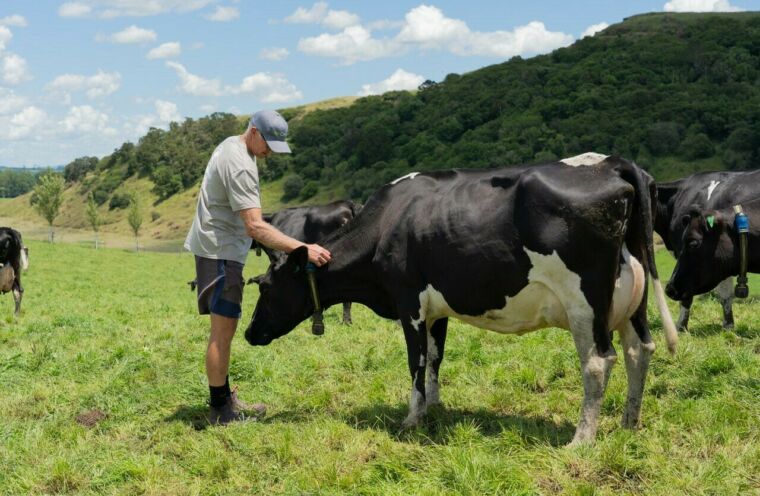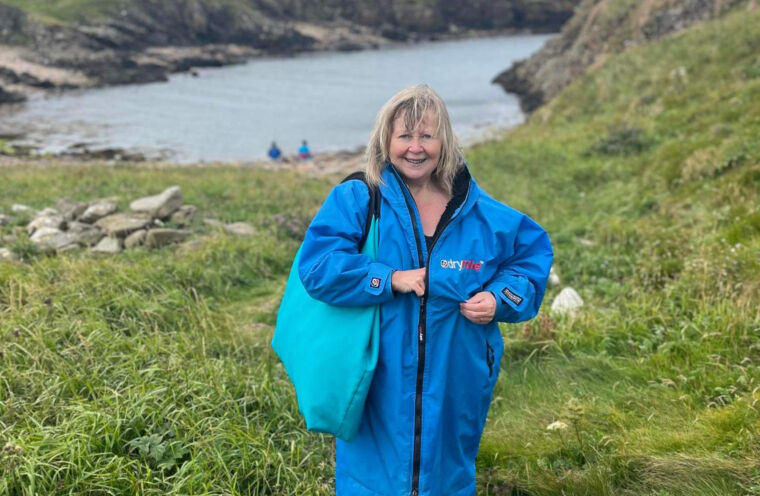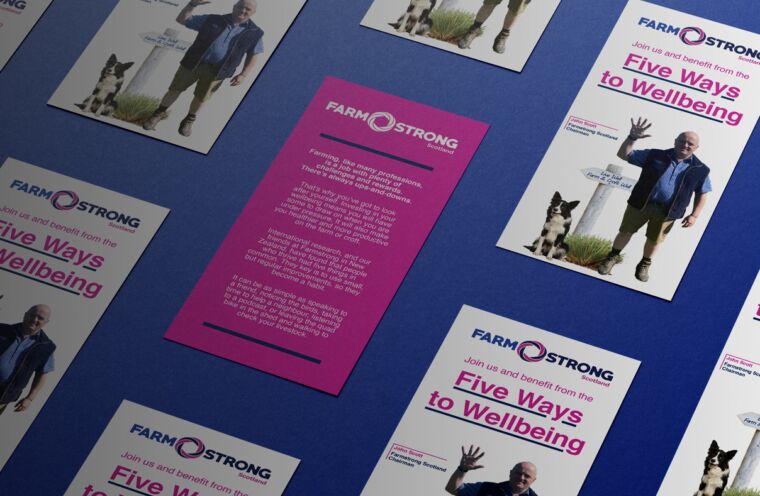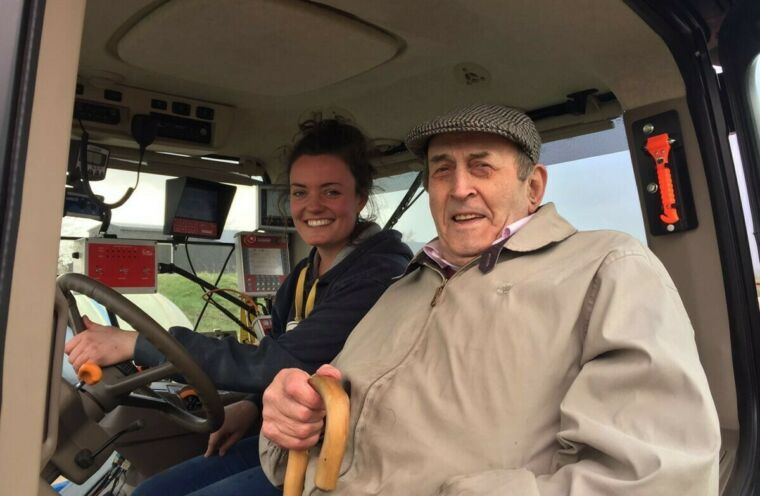Rosa Holt is a farmer's daughter who was inspired by the combination of nature and science. She went on to become a registered Dietitian working as a specialist in critical care for the NHS. In this special feature, prepared especially for Farmstrong Scotland, she shares five of her top tips for health and wellbeing.
Nutrition Number One: Stay hydrated
As farmers and crofters, you will know already that water is essential for life. Water helps us move essential nutrients around the body and remove waste with adults needing around 1.5 - 2L of fluid per day. Water or milk are both good options. We need more on hot days and when we are busy. Anyone been clipping sheep this summer? It’s thirsty work.
Dehydration can quickly affect our ability to think clearly, we can get headaches, feel tired and lose concentration. It can have uncomfortable longer-term effects too such as causing constipation and urinary tract infections.
Many of us reach for caffeinated drinks such as fizzy drinks and energy drinks. These can lead to low mood, headaches and irritability when they wear off not to mention they can be expensive too!
So what does Rosa suggest?
- Pack a flask, bring a few reusable bottles or fill up an empty squash bottle - make sure you have hydrating fluids with you.
Nutrition Number Two: Eat more wholefoods (Real Food!)
Wholefoods such as nuts, beans, grains, peas, seeds, fruit and vegetables are clever foods. They are high in a diverse range of vitamins and minerals including B vitamins and zinc.
They also contain beneficial compounds called polyphenols which can protect us from cardiovascular disease, cancer and diabetes.
They are super important because they contain fibre. Fibre gets broken down (it ferments actually a bit like silage!) in our intestine which supports our gut microbiome. These gut microbes produce short-chain fatty acids and these are key to our health because they impact our immunity, inflammation and how our body processes other nutrients (there’s a reason your grandparents ate prunes!). It’s recommended that adults get 30g of dietary fibre every day. It’s super easy to do.
So what does Rosa suggest?
- Try peanut butter on wholemeal toast
- Every considered plums on your porridge oats - real oats, not the microwaveable sachets are best.
- Baked beans on a baked potato - eat the skins too for extra goodness.
- Choose wholemeal or seeded options every time
- Add a tin of lentils to your usual spaghetti bolognese, curry or stew and serve with veg - easy and no one will even know!
Nutrition Number Three: Eat regular meals
Do yourself a favour and create a healthy habit by following a regular meal pattern. Breakfast, lunch and dinner with help fuel your day, and help you function at your best to power through those long days.
Many people skip meals because they don’t feel hungry or think they don’t have time. But this habit will lead you to reach for snacks and drinks that give you an instant energy fix but definitely won’t make you feel good in the long term. It’s a vicious cycle.
So what does Rosa suggest?
- Keep a routine and you will soon find that you will feel hungry at mealtimes
- Have a proper breakfast - something savoury like boiled eggs, mushrooms or tinned fish on wholemeal toast is a winner, or what about porridge oats topped with peanut butter, another great option.
Nutrition Number Four: Eat less ultra-processed food (Fake Food!)
The UK consumes more ultra-processed foods than any other country in Europe! Ultra-processed foods include foods like fizzy drinks, packaged snacks (crisps, biscuits cereal bars), confectionery, ready meals, breakfast cereals, packed bread, reconstituted meat or meat alternatives and sweetened yoghurt.
Ultra-processed foods contain high levels of fat, salt and sugar. They also contain nasties like soy protein isolate, emulsifiers, artificial colours, sweeteners and flavours to make them tasty and give a longer shelf life - does anyone farm these additives near you? Didn’t think so!
The additives directly reduce and change our gut microbiome, they increase unwanted compounds in our intestine and as a result, they have negative effects on our wellbeing.
So what does Rosa suggest?
- Take leftover dinner for lunch the next day - what could be easier?
- Take a moment to do a proper food shop - having good food in the house helps you make the right choices.
Nutrition Number Five: Eat in good company
While not everyone is a social butterfly, spending your breaks with others is beneficial. When we spend our breaks alone, we naturally get drawn into our digital distractions and doom scrolling.
Instead, enjoy the moment and share this time with friends and colleagues. This builds healthy working relationships, debate and crucially, banter! What’s your colleague got for lunch and why?
So what does Rosa suggest?
- Make it a routine to stop at regular meal times, chat, enjoy your lunch and keep the motivation up.
A bit more about Rosa
Rosa's passion for agriculture led her back into general farm work, receiving Highly Commended in the Young Organic Farmer of the Year Award in 2021 and in 2022. She completed a masters degree in organic farming. and is registered as a BASIS Environmental Advisor. She also works with the Soil Association Exchange to support UK farmers to optimise performance and implement sustainable solutions in practice.
Her interest in agroecology and public health has led her to work with policy makers and NGOs to influence change. In addition, Rosa is a Director at the Scottish Organic Producers Association (SOPA) and on the British Dietetic Association’s Sustainable Diets Committee supporting knowledge sharing of agroecology and public health.
With this in mind, Rosa understands the relationship between farming, diet quality and provenance as key drivers for our health, she feels a huge sense of personal responsibility to these sectors. Rosa believes that agriculture holds many of the solutions for the future of our environment and public health.

